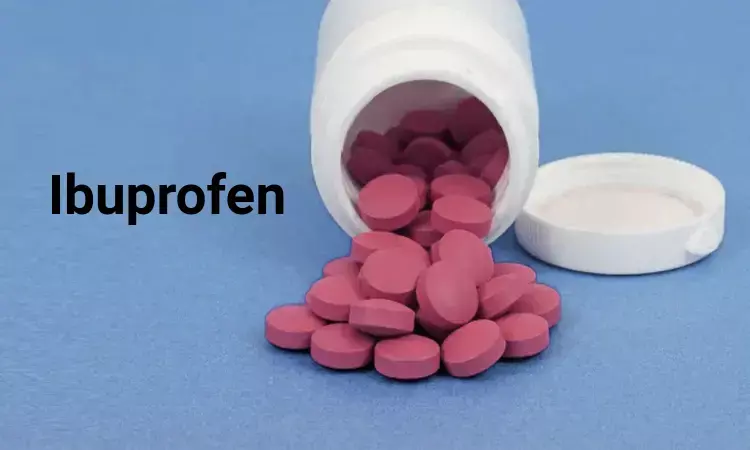- Home
- Medical news & Guidelines
- Anesthesiology
- Cardiology and CTVS
- Critical Care
- Dentistry
- Dermatology
- Diabetes and Endocrinology
- ENT
- Gastroenterology
- Medicine
- Nephrology
- Neurology
- Obstretics-Gynaecology
- Oncology
- Ophthalmology
- Orthopaedics
- Pediatrics-Neonatology
- Psychiatry
- Pulmonology
- Radiology
- Surgery
- Urology
- Laboratory Medicine
- Diet
- Nursing
- Paramedical
- Physiotherapy
- Health news
- Fact Check
- Bone Health Fact Check
- Brain Health Fact Check
- Cancer Related Fact Check
- Child Care Fact Check
- Dental and oral health fact check
- Diabetes and metabolic health fact check
- Diet and Nutrition Fact Check
- Eye and ENT Care Fact Check
- Fitness fact check
- Gut health fact check
- Heart health fact check
- Kidney health fact check
- Medical education fact check
- Men's health fact check
- Respiratory fact check
- Skin and hair care fact check
- Vaccine and Immunization fact check
- Women's health fact check
- AYUSH
- State News
- Andaman and Nicobar Islands
- Andhra Pradesh
- Arunachal Pradesh
- Assam
- Bihar
- Chandigarh
- Chattisgarh
- Dadra and Nagar Haveli
- Daman and Diu
- Delhi
- Goa
- Gujarat
- Haryana
- Himachal Pradesh
- Jammu & Kashmir
- Jharkhand
- Karnataka
- Kerala
- Ladakh
- Lakshadweep
- Madhya Pradesh
- Maharashtra
- Manipur
- Meghalaya
- Mizoram
- Nagaland
- Odisha
- Puducherry
- Punjab
- Rajasthan
- Sikkim
- Tamil Nadu
- Telangana
- Tripura
- Uttar Pradesh
- Uttrakhand
- West Bengal
- Medical Education
- Industry
Ibuprofen superior to codeine for postoperative pain management: Study

NSAIDs are equal or superior to codeine for postoperative pain in all surgery types, subbgroups and outcome time points
Hamilton, Ontario: Adult patients treated with NSAIDs (such as ibuprofen) for postoperative pain had better pain control and lesser adverse effects than those treated with codeine (an opioid), according to a recent study in CMAJ (Canadian Medical Association Journal). This information can be used by clinicians for improving both opioid stewardship and pain management.
"We found that patients randomized to nonsteroidal anti-inflammatory drugs (NSAIDs) following outpatient surgical procedures reported better pain scores, better global assessment scores, fewer adverse effects and no difference in bleeding events, compared with those receiving codeine," write the authors.
The researchers conducted a systematic review and meta-analysis of 40 high-quality randomized controlled trials (RCTs) involving more than 5100 adults to compare pain levels and safety of medications containing codeine, such as Tylenol #3, with NSAIDs. Patients who took NSAIDs had lower pain scores at 6 and 12 hours after treatment than patients taking codeine.
"In all surgery types, subgroups and outcome time points, NSAIDs were equal or superior to codeine for postoperative pain," writes Dr. Matthew Choi, Associate Professor of Surgery, McMaster University, with coauthors.
Codeine is widely used for postoperative pain management and is the most commonly prescribed opioid in Canada. However, codeine is associated with a range of adverse effects and potential misuse or addiction. Alternatives such as NSAIDs can help reduce opioid use in patients after dental and surgical procedures.
Given the range of procedures and dosage combinations included in the high-quality RCTs, the authors suggest that their results have wide clinical application.
"These findings are of general importance to any clinician performing painful medical procedures. The various trials in our meta-analysis evaluated a range of procedures, different NSAID types and various degrees of acetaminophen administration."
The authors conclude that their findings "strengthen existing evidence and are broadly generalizable to patients across surgical disciplines."
Reference:
The study titled, "Managing postoperative pain in adult outpatients: a systematic review and meta-analysis comparing codeine with NSAIDs," is published in the Canadian Medical Association Journal.
DOI: https://www.cmaj.ca/content/193/24/E895
Hina Zahid Joined Medical Dialogue in 2017 with a passion to work as a Reporter. She coordinates with various national and international journals and association and covers all the stories related to Medical guidelines, Medical Journals, rare medical surgeries as well as all the updates in the medical field. Email: editorial@medicaldialogues.in. Contact no. 011-43720751
Dr Kamal Kant Kohli-MBBS, DTCD- a chest specialist with more than 30 years of practice and a flair for writing clinical articles, Dr Kamal Kant Kohli joined Medical Dialogues as a Chief Editor of Medical News. Besides writing articles, as an editor, he proofreads and verifies all the medical content published on Medical Dialogues including those coming from journals, studies,medical conferences,guidelines etc. Email: drkohli@medicaldialogues.in. Contact no. 011-43720751


